The views expressed in our content reflect individual perspectives and do not represent the official views of the Baha'i Faith.
In 1914, the material and economic stability of Europe abruptly collapsed, and the repeated Baha’i warnings and predictions about a world war tragically materialized.
The spark that set ablaze the conflagration: the assassination of the heir to the throne of the Austro-Hungarian empire, Archduke Franz Ferdinand. In 1897 he had sat next to Queen Victoria at a dinner held the evening before Great Britain celebrated her diamond jubilee, attended by most of Europe’s crowned heads.
How could a terrorist assassination of an heir to a relatively minor throne create a worldwide conflagration?
It could only happen, the Baha’i teachings pointed out, because of the vast armies and huge national arsenals world leaders had amassed:
A general melee of the civilized nations is in sight. A tremendous conflict is at hand. The world is at the threshold of a most tragic struggle. The evil forces of war are plotting against mankind. The dark waves of sinister motives and satanic passions are battling in the breasts of men. The shafts of intrigues and diplomatic deceits have blackened the sky of man’s conscience. The chancelleries of Europe have become the combustible storehouses of warlike thoughts. Menacing, hidden forces are brought upon the stage of spectacular play. Vast armies—millions of men—are being mobilized and centred at their frontiers. They are being prepared for the fearful contest. The slightest friction will bring them into a terrific clash, and then there will be a conflagration the like of which is not recorded in the past history of mankind.
While in America, I spoke before many Peace Societies, Churches and Conventions, and foretold the fearful consequences of armed peace in Europe. I said Europe is like unto an arsenal and one tiny spark will cause a universal combustion. ’O men! Come ye together and as far as possible try to extinguish this world-raging fire; do your utmost to prevent the occurrence of this general conflict; make ye an effort so that this flood-gate of human butchery may not be set loose!’ I found no one to listen to my advice. I searched, but there were no hearing ears. I cried out at the top of my voice, I pleaded, I enunciated the evils of war, but people were self-occupied, self-centred. And now this is the result. They have witnessed, they have experienced in the past that war is conducive to the destruction of the foundation of the edifice of humanity, the cause of devastation of the world of commerce, industry, arts and trade. The combatants—the conqueror and the conquered—are both losers. Neither party gains any substantial profit. The two combatants are like unto two ships which collide against each other. One may sink to the bottom of the sea, but the other will also carry away its injuries and bruises. Therefore, the victor and the defeated fail to obtain any benefit. The utmost is this: Temporarily one country holds the territory of another. This is of a short duration. In the course of the life of that nation, a time will sooner or later come when the conquered will become again the conqueror. In the political history of France and Germany and their wars, such reverses of national fortunes have often occurred. – Abdu’l-Baha, from a speech given on 3 August 1914, Star of the West, Volume 4, pp. 163-164.
As the war raged on the European continent, the American president foresaw the dangers of sending young men into the conflagration. Elected to the presidency in 1912, Woodrow Wilson had been President of Princeton University from 1902 to 1910 and Governor of New Jersey from 1911 to 1913.
For Wilson, the greatest danger to civilization was not the financial and material losses that such a war would wreak, nor the upending of defeated nations, but rather the moral bankruptcy that he correctly perceived could follow. In a widely published account that mentions this great American president, the Universal House of Justice wrote:
One of the considerations that long held back President Woodrow Wilson from proposing to the United States Congress the declaration of war that had by (1917) become virtually inescapable was his awareness of the moral damage that would ensue. Not the least of the distinctions that characterized this extraordinary man—a statesman whose vision both Abdu’l-Baha and Shoghi Effendi have praised—was his understanding of the brutalization of human nature that would be the worst legacy of the tragedy that was by then engulfing Europe, a legacy beyond human capacity to reverse. – Century of Light, p. 32.
In the aftermath of that terrible conflagration, Wilson sacrificed his health and shortened his life while urging world leaders to embrace his “Fourteen Points” and establish a League of Nations—without which, he ominously suggested, another more terrible war would eventually break out. Wilson had had some exposure to the Baha’i teachings from which, according to a daughter, he had prepared his Fourteen Points. Delivered to Congress on 8 January 1918, President Wilson outlined the Principles and corresponding peace terms. Sadly, narrow-minded politicians subsequently refused to ratify the treaty that he had fought so valiantly to achieve and that other nations had embraced. As a consequence, the League of Nations failed to function as it might have—and also failed to prevent the next World War.
Instead, the heavy-handed peace treaty imposed by the Allied powers on the defeated antagonists planted the seeds of another more terrible conflict; one that barely 21 years later erupted again on the European continent. This one would slaughter upwards of 60 million military and civilian personnel and cost the participants $280 billion dollars in 1945 currency.
Abdu’l-Baha had foreseen the hollowness of the Armistice at the time being celebrated around the world:
Peace, peace … the lips of potentates and peoples unceasingly proclaim, whereas the fire of unquenched hatreds still smolders in their hearts. … The ills from which the world now suffers will multiply; the gloom which envelops it will deepen. … The vanquished Powers will continue to agitate. They will resort to every measure that may rekindle the flame of war. – Selections from the Writings of Abdu’l-Baha, pp. 249-250.
The last veteran of the Great War died in 2012 at the age of 110, a British citizen who had served in the Allied armed forces. The last Central Powers veteran expired at the age of 107 in 2008. During the war, many of these combatants came to realize the futility of a conflict that tragically cost them so much of their youth, their outlook and their futures. The war introduced many horrific milestones in human degradation: brutal trench warfare, the first use of poison gas in warfare, the industrialization of war and the wholesale slaughter of human lives for no reason, military advantage or rational objective. As early as Christmas of 1914, a section of the opposing armies in the trenches laid down their arms, came together and celebrated the birth of Christ together.
The First World War, ignited by the seemingly unimportant though tragic assassination of a member of Austrian royalty, should remind us that any seemingly minor hostility breaking out on the planet can ignite a spark and once again set the world ablaze.
Writing in the 19th century, Baha’u’llah, in chastising the rulers of the world for their divisive militarism and constant build-up of armaments, revealed the cure that would heal humanity’s ills:
We behold (mankind), in this day, at the mercy of rulers so drunk with pride that they cannot discern clearly their own best advantage …. And whenever any one of them hath striven to improve its condition, his motive hath been his own gain, whether confessedly so or not; and the unworthiness of this motive hath limited his power to heal or cure.
That which the Lord hath ordained as the sovereign remedy and mightiest instrument for the healing of all the world is the union of all its peoples in one universal Cause, one common Faith. This can in no wise be achieved except through the power of a skilled, an all-powerful and inspired Physician. This, verily, is the truth, and all else naught but error. – Baha’u’llah, Gleanings from the Writings of Baha’u’llah, p. 255.






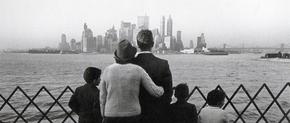





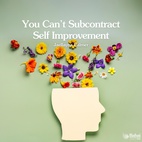
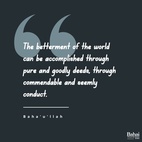
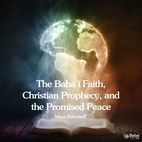
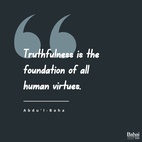

Comments
Sign in or create an account
Continue with Facebookor